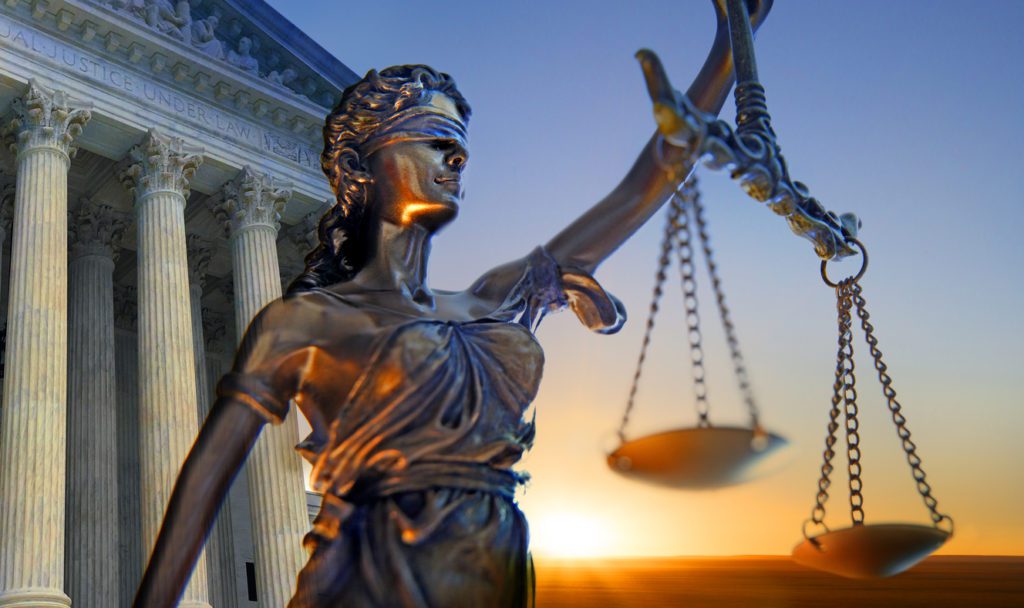Victory! Supreme Court Backs CIC Services 9-0 Against The IRS
In a precedent-setting Supreme Court case, CIC Services has won an important victory for taxpayers against the IRS.
In CIC Services v. Internal Revenue Service, the issue before the court was whether or not the IRS has a special privilege, not available to any other governmental agency, to pass and enforce even illegal regulations without interference from any court. CIC Services contended that the Service does not have such a privilege while the IRS contended that it does.
“The IRS never vigorously disputed our contention that Notice 2016-66 is an illegal regulation”, said Sean King, General Counsel for CIC Services. “In the latter stages of litigation especially, the Service more or less accepted, at least for the sake of argument, that the notice was illegally issued in contravention of the Administrative Procedures Act.”
Despite its obvious and all-but-conceded illegality, the IRS stated that it would continue enforcing the illegal notice, and it contended that courts are powerless to stop it from doing so as a consequence of the Anti-Injunction Act, a Civil War era law prohibiting federal courts from issuing injunctions that “restrain” the “assessment or collection of a tax.”
“Almost unbelievably, the IRS’s position was essentially that it alone among federal agencies may, by virtue of the Anti-Injunction Act, issue and enforce even facially illegal regulations without court interfence, at least whenever doing so may at some unknown point in the future aid the Service in assessing or collecting some unknown amount of tax from some unidentified taxpayer”, said King. “But neither the text nor the history of the Anti-Injunction Act supports such a contention, and the act would be tyrannically unconstitutional if it did.”
On May 17, 2021 the Supreme Court of the United States agreed with CIC Services. In a unanimous decision, the court ruled that the Anti-Injunction Act does not prevent federal courts from enjoining the IRS’s enforcement of illegal regulations when the regulation imposes affirmative reporting obligations that inflict costs on taxpayers separate and apart from any tax or tax penalty, when any potential tax that may someday be assessed is many steps downstream from the present lawsuit, and when noncompliance with the illegal regulation is also backed by threat of criminal penalties.
“This case is hugely significant given that the IRS has made issuing illegal regulations and enforcing them against taxpayers part of its standard operating procedure”, said King. “An alarming percentage of substantive obligations that the IRS imposes upon taxpayers each year by fiat don’t comply with the procedural requirements of the Administrative Procedures Act, and so are illegal, and yet are still shamelessly enforced by the Service.”
An amicus brief filed by The Tax Clinic at the Legal Services Center of Harvard Law School noted just how devastating the IRS’s lawlessness can be, especially for low income taxpayers. From the amicus brief:
“Corporations like CIC Services and/or wealthy individuals might find that, while painful, they are still able to bear the cost of noncompliance and sue for a refund in court. For many of our low-income taxpayer clients, however, even relatively small penalties will present insurmountable barriers to challenging unduly burdensome informational requirements. Immunizing regulations that apply to low-income taxpayers from pre-enforcement judicial review will not only disregard Congress’s intent to limit the scope of the AIA generally, but will also undermine Congress’s substantive anti-poverty tax policies.”
Under the old way of operating, the Service could issue and enforce illegal regulations that had little or nothing to do with assessing or collecting taxes, and it regularly did so, simply because most taxpayers had neither the money nor the stomach to resist its overreach, and because the courts felt powerless to aid taxpayers under a broad reading of the Anti-Injunction Act. “But today the Supreme Court made it clear that the Anti-Injunction Act doesn’t always prevent courts from ending IRS abuse”, said King.
The Supreme Court has now remanded the case back to the district court for a determination on whether or not Notice 2016-66 should be formally enjoined. “When we go back to district court this time, the IRS will not be able to hide behind the Anti-Injunction Act”, said King. “This time it will have to defend itself as any other administrative agency would. It will have to account to the court for its abuses, and the court will be empowered to end it.”
CIC Services would like to recognize and extend its undying gratitude to all those who have supported its efforts to win this incredibly important victory for taxpayers. “So many deserve credit,” said King, “including our amazing attorneys, who often worked pro bono, and all of those who filed amicus briefs on our behalf—the Tax Clinic at the Legal Services Center of Harvard Law School, the American College of Tax Counsel, the US Chamber of Commerce, the Americans for Prosperity Foundation, the Center for Taxpayer Rights, the National Federation of Independent Business Small Business Legal Center, Professor Kristin Hickman of the University of Minnesotta Law School, the captive insurance associations of many of the various states, the National Taxpayers Union, and so many more.”

